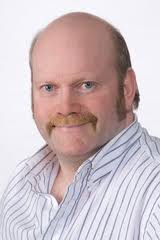This Wednesday Sandbox gathering we learn about Jungian Psychology with Randy Goldberg. Do you sabotage yourself in love or business? Are you affraid of your shadow side? Would you like to be more in touch with your devine feminine?
Join us on this as a downward movement towards the shadow, the wound, the feminine.
This evening we will explore ideas about the ego/Self axis, complexes, archetypes, mid-life crisis, personality types, and alchemy. Carl Jung’s recently published Red Book made the NY Times top 10 best seller list, close to one hundred years after it was created. It is his personal diary and mandalas, detailing his descent into his unconscious with the use of a technique called Active Imagination. Jung felt that the real spirituality after the age 40 was shadow work.
Jung developed his own distinctive approach to the study of the human mind. In his early years when working in a Swiss hospital with schizophrenic patients and working with Sigmund Freud and the burgeoning psychoanalytic community, he took a closer look at the mysterious depths of the human unconscious. Fascinated by what he saw (and spurred on with even more passion by the experiences and questions of his personal life) he devoted his life to the exploration of the unconscious.
Unlike many modern psychologists, Jung did not feel that experimenting using natural science was the only means to understand the human psyche. For him, he saw as empirical evidence the world of dream, myth, and folklore, as the promising road to its deeper understanding, and meaning. That method's choice is related with his choice of the object of his science. As Jung said, "The beauty about the unconscious is that it is really unconscious". Hence, the unconscious is 'untouchable' by experimental researches—actually it is out of any possible kind of scientific or philosophic reach precisely because it is unconscious.
Although the unconscious can't be studied by using direct approaches it is according to Jung, at least, a useful hypothesis. His postulated unconscious was quite different of the model that was proposed by Freud, despite the great influence that the founder of Psychoanalysis had on Jung. The most known difference is the assumption of the collective unconscious (see also Jungian archetypes). Although Jung's proposal of collective unconscious, and archetypes, was based on the assumption of the existence of psychic (mental) patterns. These patterns include conscious contents - thoughts, memories, et al. - which came from life experience. They are common to each human being and, actually, they're precisely what makes every human being have something in common. His proof of the vast collective unconscious was his concept of synchronicity, that inexplicable, uncanny connectedness that we all share. From http://en.wikipedia.org/wiki/Analytical_psychology#Overview
 Randy Goldberg has immersed himself in Jungian psychology for the past ten years, taking most of the courses offered at the Jung Society of Washington. Randy is a former Yoga monk, a Craniosacral therapist, a world famous astrologer interviewed by the Washington Post and by CNN. He facilitates Family Constellation therapy for individuals and groups.
Randy Goldberg has immersed himself in Jungian psychology for the past ten years, taking most of the courses offered at the Jung Society of Washington. Randy is a former Yoga monk, a Craniosacral therapist, a world famous astrologer interviewed by the Washington Post and by CNN. He facilitates Family Constellation therapy for individuals and groups.
You can reach Randy at randy (at) randygoldberg (dot) org or 202-518-0442 www.randygoldberg.org
The workshop begins after dinner at 8pm. I invite you to join us, though as always what ever choice you make you will be honored in.
